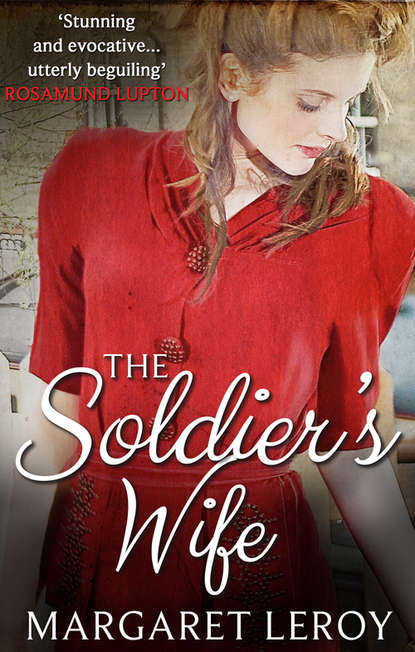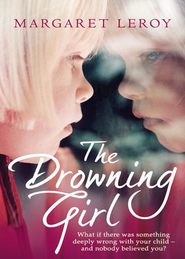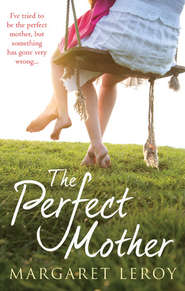По всем вопросам обращайтесь на: info@litportal.ru
(©) 2003-2024.
✖
The Soldier’s Wife
Настройки чтения
Размер шрифта
Высота строк
Поля
‘I’d love to.’
We have a favourite tea shop—Mrs du Barry’s on the High Street. We take the table we always choose—the table right at the back that has a wide view over the harbour. There’s a crisp starched tablecloth, and marigolds in a glass vase; the marigolds have a thin, peppery scent. The shop is almost empty, except for an elderly couple talking in slow, hushed voices, and a woman with eyes smudged with tiredness and a baby in her arms. As she sips her tea, the woman rests her cheek against the baby’s head. I feel a surge of nostalgia, remembering the sensation of a baby’s head against you—how fragile it feels where the bones haven’t fused, and how hot and scented and sweet.
‘Gwen—how did you decide?’ I ask.
‘Ernie wouldn’t leave,’ she tells me. Gwen and Ernie live at Elm Tree Farm, in Torteval; they have a big granite farmhouse and a lot of fertile land. ‘Not after all those years of work. “I’m damned if I’ll let them take it all away from me,” he said.’
‘Well, good for him …’
Her bright face seems to cloud over. She pushes back her hair. A haze of anxiety hangs about her.
‘How can you ever know what the right thing is? How can you ever know?’ she says.
‘You can’t. I keep wondering too. Whether I’ve made an awful mistake …’
‘Johnnie can’t bear it, of course, being stuck here, kicking his heels. Poor kid. He simply can’t bear that he was too young to join up.’
‘I can imagine that. How he would feel that …’
I think of her younger son, Johnnie—how impulsive he is, how he’d yearn for action. I’ve always been fond of Johnnie, with his exuberance, his wild brown hair, his restless, clever hands. He and Blanche would play together a lot when they were small—making mud pies and flower soup, or building dens in the Blancs Bois—until at seven or eight, as children will, they went their separate ways. Then I taught him piano for a while, though he often forgot to bring the right music, and scarcely practised at all. Until he discovered a talent for ragtime, which I could never play. He had the rhythm in him, and there was no stopping him.
‘But I wasn’t going to let Johnnie go to England on his own,’ says Gwen. ‘Not after … Well …’
She doesn’t finish her sentence. Her eyes glitter with unshed tears: the stricken look crosses her face. Brian, her elder son, was lost at Trondheim, in the Norwegian campaign. After it happened, I would panic sometimes when I was with her; afraid of the gaps in our conversations, as though they were cliffs you could fall from, afraid of saying his name. Once I told her: I’m so frightened of reminding you, I don’t want to make you upset … And she said, Vivienne, it’s not as though you’re reminding me of something I’ve forgotten. It’s not as though I don’t think of him every moment of every day. The only time I don’t think of him is when I’m fast asleep—then every morning I wake up and I have to learn it again. So let’s just get on with it …
‘I want to keep Johnnie close,’ she says now.
I put my hand on her wrist.
‘Of course you do,’ I say. ‘Of course you wouldn’t want him to go …’
Perhaps I’m lucky that both my children are girls. When I was younger, I felt I’d love to have a son, as well; but war changes everything. Even the things you hope for.
Mrs du Barry brings our tea. The quilted tea cosy is shaped like a thatched cottage, and the milk jug has a crochet cover held in place by beads. There are cakes on a silver cake stand—Battenberg, cream slices, luxurious chocolate eclairs. I take a slice of Battenberg. We sip our tea and eat our cake, and watch as the sun sinks down in the sky and spreads its gold on the sea.
Gwen sighs.
‘Johnnie’s such a worry—what he might get up to,’ she says. ‘He’s been a bit wild since it happened. It’s not really anything he’s done—just what I feel he could do …’
‘It’s such a short time,’ I tell her.
‘He worshipped his brother,’ she says.
‘Yes.’
I remember Brian’s memorial service—how Johnnie didn’t cry; how he stood to attention, his face white as wax, his body so rigid, controlled: making me think of a cello string stretched too tight, that might suddenly break. He troubled me. I know just why Gwen worries so about him.
‘He longs to do what Brian did,’ she tells me. ‘He wears Brian’s army jumper. And he’s got a box of Brian’s things—his binoculars, and his shotgun that he used for shooting rabbits, and his famous collection of Dinky cars that he kept from when he was small. The box is Johnnie’s most precious possession; he keeps it under his bed …’
I feel a tug of sadness, for Johnnie.
We’re quiet for a moment. It’s getting late, and Mrs du Barry hangs the Closed sign on her door. My hands are sticky with marzipan from the Battenberg cake, and I wipe them on my handkerchief. The spicy scent of the marigolds is all around us.
And then I ask the question that looms at the front of my mind—vivid as neon, inescapable.
‘Gwen. What will happen?’
She leans a little towards me.
‘They’ll overlook us,’ she says, too definitely. ‘Don’t you think? Like in the Great War.’
‘Do you really think so?’
‘Nobody bothered with us, during the Great War,’ she says.
‘That’s true enough. But that was then …’
‘I mean, what difference do we make to anything? What use could these little islands possibly be to Hitler?’ There’s a note of pleading in her voice: perhaps it’s herself as much as me that she’s trying to persuade. ‘Maybe he won’t think of us. That’s what I hope, anyway. You’ve got to hope, haven’t you?’
But her hand holding the teacup is shaking very slightly, so the tea shivers all across its surface.
She clears her throat, which seems suddenly thick.
‘Anyway, Vivienne—tell me more about all of you,’ she says. Moving on to safer things.
‘Blanche is unhappy,’ I tell her. ‘She terribly wanted to go.’
‘Well, she would, of course,’ says Gwen. ‘There isn’t much here for young people, you can see how she’d long for London. And Millie?’
‘She’s being ever so brave, though she doesn’t really understand.’
‘She’s a poppet,’ says Gwen.
‘And Evelyn—well, I’m not sure she’s quite right in her mind any more. Half the time she seems to forget that Eugene joined up …’ I see the shadow that rapidly moves across Gwen’s face, at the mention of Eugene, then fades away just as quickly. I wish I hadn’t eaten the Battenberg cake: the sweetness of the marzipan is making me feel slightly sick. ‘Sometimes she asks for him,’ I tell her, ‘as though he’s still at home.’
‘Poor Vivienne. Your mother-in-law was never exactly the easiest of people,’ says Gwen carefully. ‘You’ve certainly got your hands full.’
CHAPTER 9 (#ulink_a3729927-1a69-5323-9b97-d5d470cb7910)
We say goodbye. Gwen leaves, and I go to the Ladies. I wash the marzipan from my hands, push my brush through my hair, take out my compact to powder my face. My hands have a clean, astringent smell from Mrs du Barry’s carbolic soap. Then I go back to the table to pick up my cardigan that I left there.
All the china on the tables begins to rattle violently. There’s a roaring noise from outside; at first, I can’t work out what it can be, then I think it must be a plane—yet the sound is too sudden, too loud, too near, for a plane. Fear surges through me: if this is a plane, it will crash on the town. Everyone rushes to the window at the back of the shop, which looks out over the harbour. The air seems too thin, so it’s hard to breathe.
‘No no no no,’ says Mrs du Barry. She’s standing close to me; she clutches my arm.
We see the three planes that are flying over, swooping down over the harbour: we see the bombs falling, shining, catching the sun as they fall. They seem to come down so slowly. And then the crump of the impact, the looming dust, the flame—everything breaking, broken, fires leaping up, loose tyres and oil drums flung high in the air by the blast. I hear the ferocious rattle of guns. I think, stupidly, that at least there are soldiers here after all, the soldiers haven’t left us. Then I realise that the guns I hear are German guns, in the planes. They’re machine-gunning the men, the lorries: there’s a ripping sound, a flare of fire, as a petrol tank explodes. The men on the pier are scattered, running, crumpling like straw men, thrown down.
Fear floods me. My whole body is trembling. I think of my children. Will the planes fly all over the island, will they bomb my children? And Gwen—where is Gwen? How much time did she have? Could Gwen have got away?









